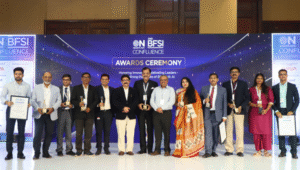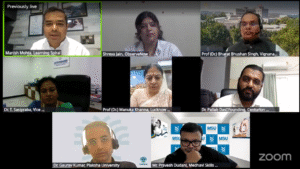End of an Era, Ratan Tata Passes Away at 86

India is in mourning following the death of Ratan Tata, the former chairman of Tata Sons, who passed away on Wednesday night at the age of 86. Tata, an icon of industry and philanthropy, leaves behind a legacy that not only transformed the Tata Group into a global powerhouse but also reshaped the Indian business landscape forever.
He was admitted to Mumbai’s Breach Candy Hospital earlier this week for a series of medical check-ups and had sought to reassure the public amid viral reports of his hospitalisation. In a message shared on social media, he stated, “There is no cause for concern. I remain in good spirits.” However, the situation deteriorated by Wednesday, & led to a loss.
N Chandrasekaran, the current chairman of Tata Sons expressed sorrow saying, “It is with profound sorrow that we bid farewell to Mr. Ratan Naval Tata, an extraordinary leader whose contributions have shaped both the Tata Group and the nation. More than just a chairperson, he was a mentor, guide, and friend. Under his stewardship, the Tata Group expanded globally while maintaining a steadfast commitment to excellence, integrity, and innovation. His dedication to philanthropy touched millions, leaving a lasting impact in areas like education and healthcare. His genuine humility in every interaction will be remembered. On behalf of the Tata family, we extend our deepest condolences to his loved ones, and his legacy will continue to inspire us”.
Tata’s influence extended far beyond the confines of his business empire. He was born into the illustrious Tata family on December 28, 1937, the great-grandson of Jamsetji Tata, the founder of the Tata Group. After completing his education in Mumbai, he moved to the United States, where he earned a degree in Architecture from Cornell University in 1962, followed by the Advanced Management Program at Harvard Business School in 1975.
Upon his return to India in 1962, Ratan Tata joined Tata Steel, where he would eventually rise to succeed JRD Tata as chairman of Tata Sons in 1991. His tenure, which lasted until 2012, was marked by a series of groundbreaking initiatives that expanded Tata’s reach on the global stage. Notable among these were the acquisitions of Corus Steel in 2007 and Jaguar Land Rover in 2008, moves that positioned Tata Steel and Tata Motors as major players in their respective industries. Tata also launched the Tata Nano, a car aimed at providing affordable transportation to millions of Indians, embodying his vision for inclusive progress.
Beyond his contributions to the automotive and steel industries, Tata’s leadership of Tata Consultancy Services (TCS) was instrumental in establishing India’s dominance in the global IT sector. TCS’s public listing in 2004 helped it become one of the largest IT services companies in the world, solidifying India’s reputation as a technology hub.
Tata’s legacy was not limited to business. His philanthropy played a crucial role in areas such as education, healthcare, and rural development. His genuine humility and quiet strength were admired by all who knew him, traits that made him a respected figure in both industry and society. Even after stepping down as chairman in 2012, Tata continued to serve as chairman emeritus of Tata Sons, Tata Motors, Tata Steel, and Tata Chemicals, staying deeply connected to the group he helped shape. His passing is not only the end of an era for the Tata Group but also a moment of profound loss for India as a whole.
Ratan Tata’s life was one of vision, compassion, and unyielding commitment to the betterment of society. His departure marks the end of a remarkable chapter in India’s history, but his legacy will undoubtedly inspire generations to come.
















